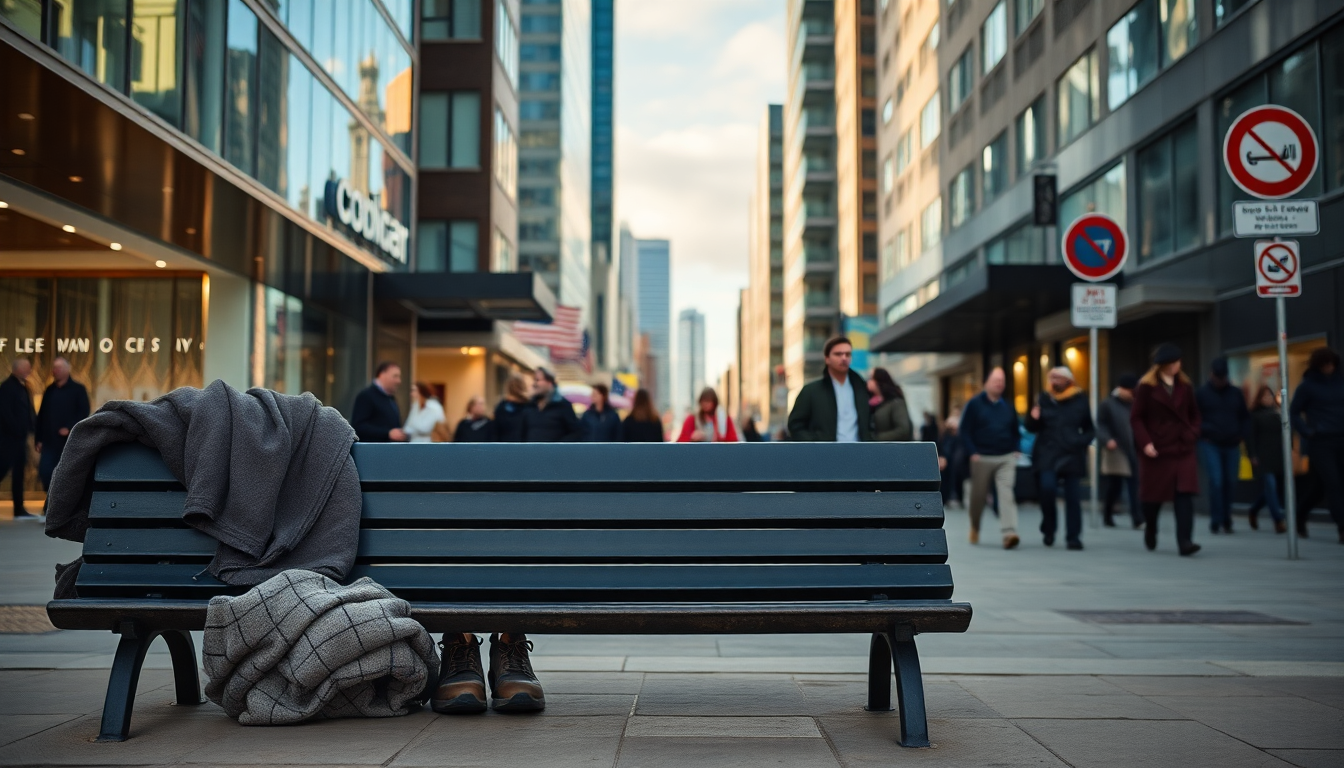Table of Contents
So, here we are, Calgary, on the brink of another municipal election, and what do we get? A shiny new proposal from The Calgary Party that’s all set to sweep the city clean—of its homeless population, that is. Because nothing screams ‘we care about our community’ quite like suggesting that people without shelter should just, you know, disappear from prime public spaces. And hell, let’s throw in some rules prohibiting overnight camping, while we’re at it. Who needs empathy when you can have a pristine Stephen Avenue?
Setting the stage for a clean sweep
Brian Thiessen, the mayoral candidate leading the charge here, paints a pretty grim picture of the current situation: people sleeping in public places because they feel unsafe. Imagine that! But instead of addressing the root of the issue—like, I don’t know, homelessness—he suggests creating ‘no overnight sleeping zones.’ It’s almost as if he believes that by simply pushing the problem out of sight, it’ll magically vanish. Poof! Like a magician, but one with a serious disregard for human lives. How charming.
A twisted sense of safety
Let’s break this down. Thiessen claims these measures are aimed at protecting vulnerable individuals from theft and overdoses. What a generous soul, right? But wait—are we really to believe that kicking people out of public spaces is a form of protection? It’s like saying, “Hey, you can’t sleep here because it’s dangerous—go sleep in this dark alley instead; it’s much safer!” Really? How does that compute? But sure, let’s ignore the irony and applaud the effort to keep our streets looking nice for the businesses and the public who want to enjoy them. Because, clearly, aesthetics are the priority here.
Enforcement and the illusion of control
And let’s not forget about enforcement. The rules surrounding rough sleeping in Calgary are already murky, and Thiessen’s policy wants to add layers of complexity to an already broken system. The city’s current bylaws do little to protect the vulnerable, and yet here we are, proposing more regulations without a hint of genuine compassion. The Vulnerable Persons Team is apparently doing its best to help people find safe spaces, but with this new proposal, one has to wonder: how many more safe spaces will be created by simply forcing people out of sight?
Business owners weigh in
Wendy Irvine, who runs the Unicorn Pub on Stephen Avenue, expressed her support for cleaning up the area but raised an eyebrow at the implications of the proposal. Where are these individuals expected to go? It’s a fair question. If we simply shove them aside, do we really solve anything? It’s like a game of whack-a-mole, but with human lives at stake. Cleaning up the streets sounds noble, but it begs the question: what about the people? The back alley is just a lovely alternative, right? Maybe we should just put up a sign saying, “Welcome to the alley, where you can sleep safely out of sight.”
A letter from the concerned citizens
The absurdity continues with a letter from 18 downtown business and property owners, crying out for action because Calgary isn’t the postcard-perfect city it once was. They demand permanent shelters and a crackdown on the visible consequences of homelessness. Their plea for reform is tinged with desperation, but let’s be real—their concern is rooted in business interests more than humanitarian ones. It’s a classic case of wanting to sweep the dirt under the rug while pretending to care about cleanliness.
Public sentiment and the reality check
According to a recent citizen satisfaction survey, 94% of respondents believe the city should do more to enhance safety downtown. Yet, the city’s latest report indicates a decrease in calls for help from peace officers and security. So, what’s the real story here? Are people feeling safer, or are they simply getting used to the status quo? Before you rush to judgment, remember: the city is gearing up for elections, and promises are flying like confetti at a parade. Will anything substantial change, or are we just looking at a shiny new facade?
As Calgarians prepare to head to the polls on October 20, the question remains: is this really the change they want, or are they just being fed the same old lines dressed up in fresh packaging? At the end of the day, one has to wonder if the proposed measures will genuinely address the homeless crisis or simply serve as a convenient way to mask the underlying issues. But hey, who needs solutions when you can have a clean street?


